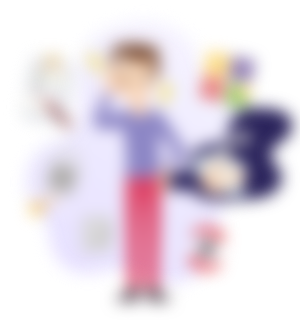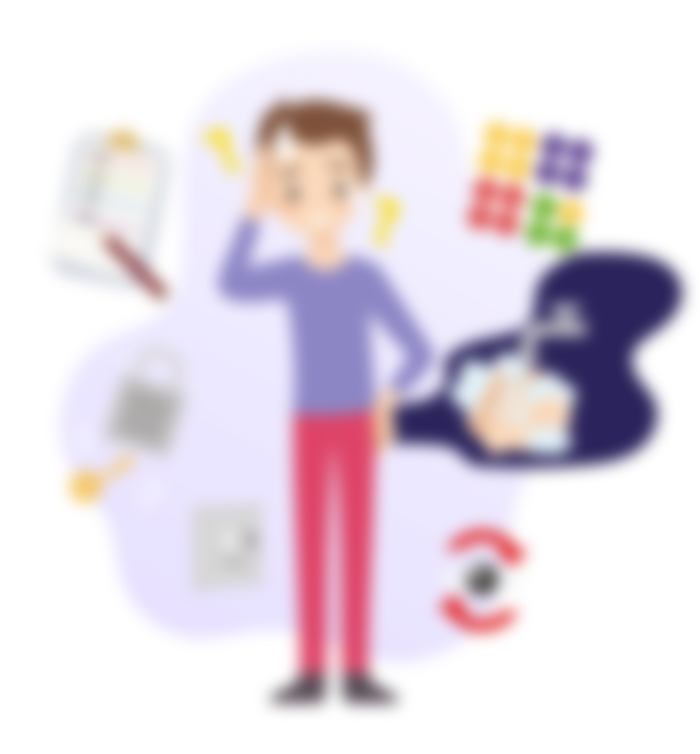Obsessive-compulsive disorder (OCD)
Obsessive Compulsive Disorder (OCD) is a disorder with a solution. Therapy studies in which correct and proven methods are applied (in some cases with drug support) give very good results in the treatment of OCD.

OCD; As its severity and intensity increase, it is a disorder that causes difficulties in the daily life of the person, restricts his life, causes problems in his work and private life, and for these reasons makes the person have to seek treatment and help after a certain stage.
People with OCD may want to hide their problems at first, and may avoid asking a specialist for help in this regard. They may think that it is a temporary thing, that they can solve it themselves, that they can manage their work and daily life without any interruption, even if it does not go away.
However, as the severity and frequency of the symptoms increase after a certain period of time; The person's daily life, mood, relationships, work/school performance begin to be affected by this situation. When the person realizes that he/she cannot cope with this problem alone, he/she considers getting help from a specialist.
What is OCD? What Kind of Inconvenience Is It?
OCD is a psychological distress that includes obsessive thoughts we call "obsessions" and compensatory behaviors we call "compulsions".
Obsessions (obsessions), which come to the mind of the person against his will, often contain threats, disturb the person, worry; They are persistently recurring thoughts that the person cannot get rid of, even if they want to.
Compulsions, on the other hand, are repetitive movements that are difficult to control, often done to banish obsessive thoughts from the mind or to compensate/prevent worrying possibilities that come to mind.
Even if the person thinks that his obsessions are irrational, he cannot prevent them, and even if he gets tired of doing compulsions, he cannot stop doing them. Because obsessions cause the person to feel threatened in some way and therefore to worry. The person also believes that he/she has to repeat various actions or thoughts (compulsions) in order to cope with this anxiety.
Typically in OCD: A thought comes to the person's mind (eg, "Washing my hands once is not enough to get rid of germs, I can get sick") and this thought starts to repeat in his head (obsession). The person becomes anxious because of this thought and unless he does something about it, his anxiety increases even more.
He/She believes that the only way to reduce this anxiety and dispel the thought is to perform compensatory behaviors (for example, he washes his hands many times until he feels clean). Once he repeats the compulsions enough times, the threat posed by his obsessions is gone, and his obsessions are "for now" out of his mind. (For example, he washed his hands sufficiently and believed that he was free from germs. Now the danger of getting sick is gone.)
Person; although he has experienced that compulsions work to dispel his obsessions; After a while, he may begin to feel that doing these repetitions is not enough, that his obsessions and compulsions increase as time passes, and the situation begins to become inextricable. (For example, now, every time he feels dirty, he needs to wash more times to reduce his anxiety, the thought that his hands are dirty starts to come to his mind more often, washing with soap and water is not enough…etc.)
Compulsions do not always have to be outwardly visible behaviors and movements. Repetition of some words or thoughts from the person's mind or mind may also be compensatory behaviors.
Solution
1-OCD is a problem that can be overcome with therapy.
2-In some cases, medication may be required in addition to therapy.
3-Cognitive-Behavioral Therapy (CBT) is the most common therapy method with proven effectiveness in the treatment of OCD.
If the person seeking treatment and help first consults a clinical psychologist, the specialist will inform and guide the person for medication support, if necessary, after the evaluation sessions.
4-IMPORTANT! People who do not have therapeutic competence but still claim to be doing therapy may find confusion and despair in a complex disorder like OCD rather than a solution. Therefore, please be sure of the area of expertise of the person you will seek help from.
5-REMEMBER! Not every case of OCD requires the use of medication, and therapy is a useful method in the treatment of OCD. For a good and unbiased assessment, first of all, consult with a specialist who is qualified to perform therapy.
